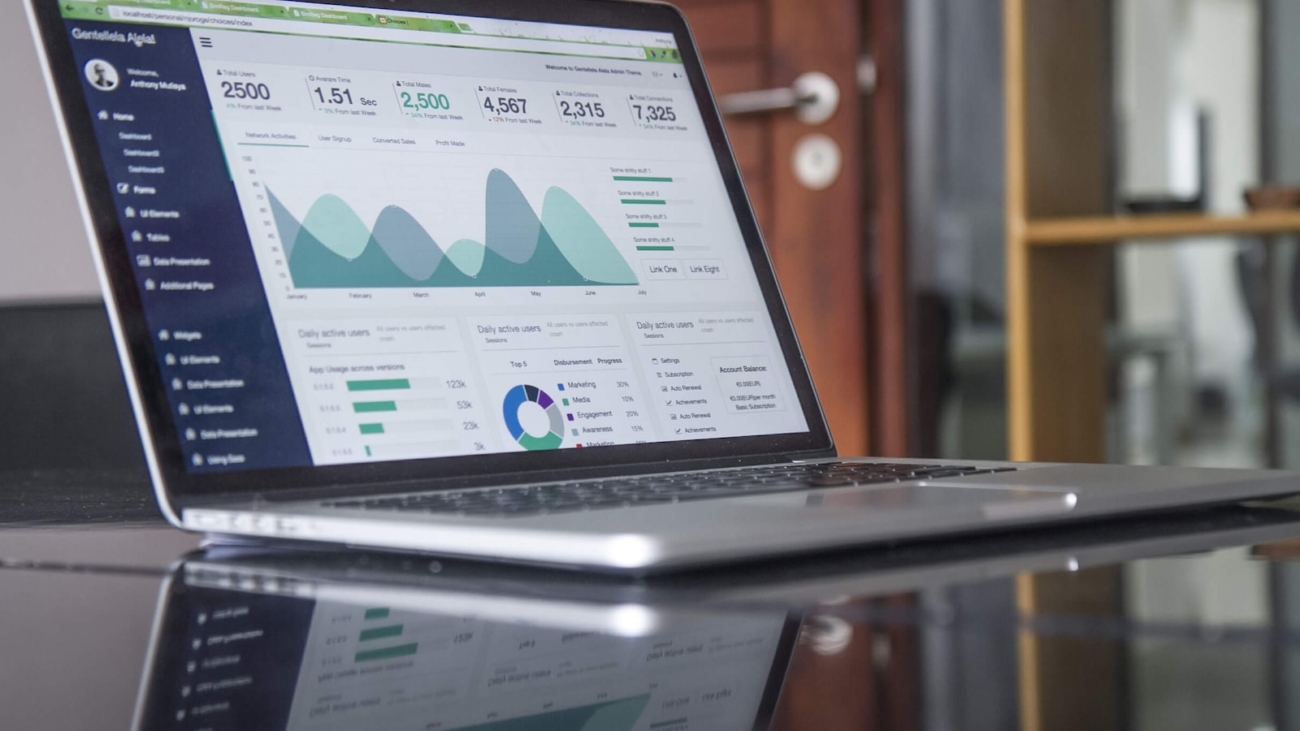Envision a world where women harness the power of data to drive innovation, make informed decisions, and shape the future of technology. In today's data-driven landscape, mastering practical data analytics tips for women is not just a choice but a pathway to empowerment and success.
Essential Technical Skills for Women in Data Analytics
In the rapidly evolving field of data analytics, women can equip themselves with a range of technical skills to excel and thrive. Here are some practical data analytics tips focused on enhancing technical capabilities:
Mastering Data Visualization Tools
Data visualization is a crucial aspect of data analytics, allowing professionals to communicate insights effectively. Women in data analytics can benefit from mastering tools like Tableau and Power BI, which enable the creation of visually appealing and informative charts, graphs, and dashboards.
Proficiency in Programming Languages
A strong foundation in programming languages such as Python and R is essential for data analysis. These languages offer powerful libraries for data manipulation, statistical analysis, and machine learning. Online resources like Python.org and R Project provide valuable learning materials for beginners.
Database Querying with SQL
Structured Query Language (SQL) is commonly used for retrieving and manipulating data stored in databases. Women in data analytics can enhance their skills by mastering SQL querying techniques, enabling them to extract valuable insights from complex datasets efficiently.
Continuous Learning and Skill Development
Staying abreast of the latest trends and advancements in data analytics is key to professional growth. Women pursuing a career in data analytics should engage in continuous learning through online courses, workshops, and industry events to expand their technical skill sets and stay competitive in the field.
Developing Strong Analytical Thinking for Women in Data Analytics
In the realm of data analytics, cultivating strong analytical thinking skills is fundamental for deriving meaningful insights from complex datasets. Here are actionable tips to enhance analytical thinking in the field:
Real-World Data Scenarios and Problem-Solving
Engaging with real-world data scenarios helps women in data analytics apply analytical thinking to solve practical problems. By working on diverse datasets and challenges, individuals can sharpen their problem-solving skills and develop a strategic approach to data analysis.
Critical Thinking and Decision-Making
Effective data analysis requires critical thinking skills to assess information objectively and derive accurate conclusions. Women in data analytics should focus on honing their critical thinking abilities to evaluate data sources, spot trends, and make informed decisions based on evidence.
Leveraging Data for Strategic Insights
Analytical thinking goes beyond raw data analysis; it involves using data to inform strategic business decisions. Women can harness their analytical skills to identify opportunities, anticipate trends, and provide valuable insights that drive business growth and innovation.
Implementing Data-Driven Solutions
Applying analytical thinking to data analytics projects involves developing data-driven solutions that address specific challenges or opportunities. By structuring their analysis around clear objectives and key performance indicators, women in data analytics can deliver actionable recommendations that drive impactful outcomes.
Effective Communication Strategies in Data Analytics for Women
In the dynamic field of data analytics, effective communication of insights is vital to drive impactful decision-making and collaboration. Let's explore practical tips for women to enhance their communication strategies in data analytics:
Presenting Data Insights Clearly and Compellingly
Mastering the art of presenting data in a clear and compelling manner is crucial for engaging stakeholders and conveying complex information effectively. Women in data analytics can leverage visualizations, storytelling techniques, and concise summaries to make data insights more accessible and actionable.
Collaborating with Cross-Functional Teams
Successful data analytics projects often involve collaboration across diverse teams and departments. Women can enhance their communication skills by fostering open dialogue, listening actively to different perspectives, and adapting their communication style to suit the needs of various stakeholders.
Storytelling with Data to Influence Decision Makers
Data storytelling is a powerful technique that blends analytical insights with a compelling narrative to drive decision-making. By crafting stories that resonate with decision makers, women in data analytics can influence strategic choices, advocate for data-driven solutions, and inspire meaningful change within their organizations.
Leveraging External Resources for Communication Skills Development
External resources, such as communication workshops, public speaking courses, and networking events, can provide valuable opportunities for women in data analytics to refine their communication strategies. Platforms like LinkedIn Learning offer a wealth of resources on data presentation and communication skills development for aspiring data professionals.
Continuous Learning and Growth Opportunities in Data Analytics for Women
Continuous learning is essential for women pursuing a successful career in data analytics, providing opportunities for skill development and professional growth. Here are practical tips for women to embrace continuous learning in data analytics:
Staying Updated with Industry Trends and Technologies
Remaining abreast of the latest trends and advancements in the data analytics field is paramount for staying competitive. Women can follow industry publications, attend webinars, and join professional associations to stay informed about emerging technologies, tools, and best practices in data analytics.
Networking and Mentorship for Career Advancement
Building a strong professional network and seeking mentorship can offer valuable support and guidance in navigating the data analytics landscape. Women in data analytics can connect with peers, industry experts, and mentors to exchange insights, access career opportunities, and receive advice on career progression.
Pursuing Certifications and Courses for Skill Enhancement
Engaging in targeted certifications and courses can enhance women's skill sets and demonstrate their commitment to professional development. Platforms like Coursera and Udacity offer a range of data analytics courses, certifications, and specializations tailored to different skill levels and career objectives.
Investing in Lifelong Learning for Sustainable Career Growth
Embracing lifelong learning as a mindset facilitates continuous skill enhancement, adaptability, and career resilience in the rapidly evolving data analytics landscape. Women can not only deepen their expertise through learning opportunities but also future-proof their careers by remaining agile and responsive to industry changes.
Overcoming Gender Bias and Building Confidence in Data Analytics
Navigating gender bias and building confidence are essential aspects of a successful career in data analytics for women. Here are actionable tips to help women overcome challenges and thrive in the field:
Strategies for Navigating Male-Dominated Work Environments
-
Establish a support network of allies and mentors who can provide guidance and advocacy.
-
Advocate for equal opportunities and visibility within the organization.
-
Challenge stereotypes and biases through education and open dialogue.
Building a Support System and Mentorship
-
Seek out mentors who can offer valuable insights, advice, and support.
-
Build relationships with peers and colleagues to foster a sense of community and belonging.
-
Participate in women in tech or data analytics groups for networking and professional development.
Advocating for Gender Diversity and Inclusivity
-
Take an active role in promoting diversity and inclusion initiatives within the workplace.
-
Encourage dialogue on gender equality and the importance of diverse perspectives in data analytics.
-
Support and mentor other women in the field to foster a culture of empowerment and collaboration.
Additional Resources for Gender Bias and Confidence Building
External resources such as workshops, webinars, and leadership programs can provide additional support in overcoming gender bias and building confidence in the data analytics field. Platforms like Google's Women Techmakers offer resources and initiatives to support women in technology-related fields and empower them to excel in their careers.
Conclusion: Empowering Women in Data Analytics
In conclusion, mastering practical data analytics tips is crucial for women seeking to excel in this dynamic field. By developing technical skills, enhancing analytical thinking, honing communication strategies, embracing continuous learning, and overcoming gender bias, women can thrive in data analytics and contribute significantly to the industry.
It is essential for women in data analytics to leverage resources, seek mentorship, engage in networking opportunities, and advocate for gender diversity and inclusivity. By supporting each other and advocating for change, women can create a more inclusive and equitable environment in the data analytics sector.
Embracing lifelong learning and staying updated with industry trends are key to sustainable career growth in data analytics. Women can empower themselves by continuously expanding their skill sets, seeking new challenges, and seizing opportunities for professional development.
As women continue to make strides in data analytics, it is essential to amplify their voices, celebrate their achievements, and champion diversity in the workforce. By breaking barriers, challenging stereotypes, and fostering a supportive community, women can shape the future of data analytics and inspire generations to come.
Remember, the journey to mastering data analytics may present challenges, but with determination, resilience, and a supportive network, women can conquer obstacles and achieve success in this rewarding and impactful field.
For further inspiration and resources on empowering women in technology, explore initiatives like Microsoft's Women in Data Science program, which aims to support and elevate women in the data analytics field. Let's continue to empower women in data analytics and drive positive change in the industry.
How can women enhance their technical skills in data analytics?
Women can enhance their technical skills in data analytics by mastering data visualization tools, learning programming languages like Python and R, and improving their database querying abilities with SQL.
What strategies can women use to develop strong analytical thinking in data analytics?
Women can develop strong analytical thinking by engaging with real-world data scenarios, honing critical thinking skills, leveraging data for strategic insights, and implementing data-driven solutions in their analysis.
How important is effective communication in data analytics for women?
Effective communication is crucial for women in data analytics to present data insights clearly, collaborate with cross-functional teams, and influence decision makers through data storytelling and compelling narratives.
What are the benefits of continuous learning and growth opportunities for women in data analytics?
Continuous learning offers women in data analytics the chance to stay updated with industry trends, network with peers and mentors, pursue certifications for skill enhancement, and invest in lifelong learning for sustainable career growth.
How can women overcome gender bias and build confidence in the field of data analytics?
Women can overcome gender bias by implementing strategies for navigating male-dominated work environments, building a support system through mentorship, advocating for gender diversity, and leveraging external resources for confidence building and skill development.








